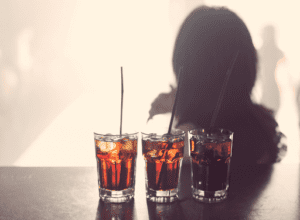Schizophrenia is a serious mental illness that can greatly affect the way a person functions in society. When a person diagnosed with schizophrenia misuses alcohol the consequences can be very negative. At Ambrosia Treatment Center, our addiction specialists are capable of helping those who suffer from alcohol addiction and have schizophrenia. We offer compassion and understanding of the complexity of this issue and utilize the latest in drug abuse treatments. This includes contingency management and cognitive-behavioral therapy which have proven to be effective for our clients with substance abuse issues.
You don’t need to feel alone in this situation. At Ambrosia Treatment Center, our state-of-the-art treatment facilities provide a serene environment perfect for alcohol addiction rehabilitation and recovery. With three locations throughout Florida and one in Pennsylvania. We help people achieve continued abstinence from drug use through our motivational-enhanced therapy which has the recovering individual contrast the drug with the benefits of achieving and maintaining recovery. And we couple that with cognitive behavioral therapy, where individuals learn skills to help them deal with addiction-related situations as they arise. We offer a holistic and supportive approach within our nationally-recognized rehab program that focuses on each one of our client’s individual needs.
What Is Schizophrenia?
The exact causes of schizophrenia at this time are still not entirely known, what is known is that it is a mental disorder that causes people to lose the ability to judge real-life situations from those imagined in their minds. Moments when people are dealing with a confusion between reality and what their brain is showing them are called psychosis. They might see things, hear things, or even smell things that simply aren’t there. There are a number of factors that scientists believe contribute to the development of schizophrenia.
Brain Chemistry – It is believed that an imbalance of the chemicals in the brain which control thoughts and behaviors is a significant factor for those suffering from schizophrenia.
Atypical Brain Structure – In some people diagnosed with schizophrenia, it has been found that they have a different layout to their brain than others, however, this does not apply to all cases.
Genetics – Like most mental illnesses, schizophrenia is believed to be hereditary in that people who have someone in their family with schizophrenia have a larger likelihood of developing the disorder than those who don’t.
Environmental Factors – In people who already have a propensity to develop schizophrenia because of their genetics things such as viral infections or immensely emotional and stressful situations can trigger psychosis. Research is even showing links between exposure to psychoactive substances like marijuana or nicotine to schizophrenia.
How Alcohol Affects People With Schizophrenia
Alcohol acts as a depressant similar to substances like Valium. This is true for any person not just people with schizophrenia. As a depressant, alcohol dulls the senses, for people diagnosed with schizophrenia, this means dulling the symptoms of their psychosis temporarily and giving them relief from hearing or seeing things that aren’t there. Studies have also shown that alcohol actually triggers a stronger euphoric feeling for people with schizophrenia than it does others making it more appealing to them. These two factors combined lead to a higher chance of a person misusing alcohol to try to deal with their schizophrenia and developing a dependency on it.
The issue with people with schizophrenia using alcohol to self-medicate is that the more they drink the more likely they are to actually make their symptoms worse as far as hallucinations are concerned. And attempting to stop using alcohol can trigger even larger psychotic episodes than before as a person deals with withdrawal symptoms.
Schizophrenia and Alcoholism
People who are diagnosed with schizophrenia are far more likely to develop dependency issues on drugs and alcohol than those without the disorder. Studies have shown that they are 2-3 times more likely to deal with alcohol misuse issues than others. They are already more inclined to deal with a struggle to navigate the social complexities of everyday life from the inaccurate information being sent to them by their brains, and alcohol can end up magnifying these effects.
Someone who has schizophrenia and is also dealing with alcohol dependency is more likely to exhibit the following symptoms:
- Depression, Irritability, or Mood Swings
- Insomnia
- Isolation or Retreat From Social Situations
- Neglect of self-care or hygiene
- Hallucinations
- Suspicion and Paranoia
- Violence and Aggression
- Self-harm or Suicidal Thoughts
Attempting to detox from alcohol is already challenging, but it is that much more difficult for someone with schizophrenia. It is important to seek professional medical assistance when trying to quit using alcohol when you have schizophrenia so that there is someone close by able to help you get through the heightened level of symptoms from the disorder which will occur once withdrawal sets in. A safe environment where you can be monitored and kept from harming yourself or others.
5-Star Alcohol Addiction Treatment Center for People with Schizophrenia
Get your health, future, and family back with top-rated compassionate care at one of our Drug Alcohol Rehab Centers. Recover at our therapeutic, sun-filled, palm tree-lined, addiction rehabilitation centers. Ambrosia Treatment Center Drug & Alcohol Rehab & Detox in-patient, out-patient, detoxification, substance abuse rehab centers provide advanced addiction recovery treatment. Ambrosia’s drug & alcohol rehab experts have been featured in the media hundreds of times including at CBS, NBC, CNN, Washington Post, Forbes & The Wall Street Journal. You’re in the right place to make real change:






